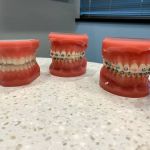What is Dental Insurance and How Does It Work?
Dental insurance—most people have heard about it, but few understand what it actually entails. For years, I avoided the idea of getting dental insurance. Why? Because I thought dental care was something I could manage on my own, but after a few expensive procedures, I quickly learned how wrong I was. It’s not just about keeping your teeth clean; dental insurance is an important part of managing your health, especially when it comes to the potentially high costs of dental care.
What Does Dental Insurance Cover?
When I first started looking into dental insurance, I was surprised to find out how much it actually covers. The coverage can vary from one plan to another, but here are some common areas dental insurance will typically cover:
- Preventive care: This includes routine check-ups, cleanings, exams, and fluoride treatments, which are essential for maintaining oral health.
- Basic procedures: This can range from fillings, extractions, and even some periodontal treatments to address gum disease.
- Major procedures: Dental insurance will often cover a portion of the costs for more expensive procedures, such as crowns, bridges, dentures, root canals, or oral surgery.
Dental plans are designed to help you manage the costs of these essential services, ensuring that regular care doesn’t break the bank. However, it’s important to carefully review each plan to understand what’s covered, as there can be significant differences in coverage between providers.
How Does Dental Insurance Work?
Understanding how dental insurance works is key to knowing whether or not it’s worth the investment. Dental insurance is often likened to car insurance. You pay a monthly premium to cover your dental care, and in return, the insurance covers a portion of your expenses. Here's how it usually breaks down:
- Preventive care: Typically fully covered. That’s right—routine cleanings and check-ups often cost you nothing out of pocket.
- Basic procedures: Usually covered, but expect to pay a portion. The insurance will cover a certain percentage (usually 70-80%), while you may have to pay the remaining 20-30%.
- Major procedures: The coverage here can vary significantly. While insurance might cover around 50%, you're still left with a significant portion to pay yourself.
- Annual maximum: Most dental plans have a maximum amount they will pay per year. Once you hit that limit, you’ll be responsible for the rest of the costs for the remainder of the year.
In my experience, having dental insurance has made it much easier to predict my expenses. While I do have to pay some out-of-pocket costs, the peace of mind that comes with knowing that most of my preventive care and some major procedures are covered is invaluable. It’s a way to ensure I don’t face hefty bills out of nowhere, especially when I’m in need of a root canal or a dental implant.
Is Dental Insurance Worth It?
For me, the question wasn’t whether I needed dental insurance, but whether the plan I had was worth the cost. Many people ask themselves if they should purchase dental insurance, and while the answer varies depending on personal circumstances, I can share what I’ve learned:
- Routine Care: If you don’t have insurance, you may skip regular cleanings, which can lead to more severe oral health issues later. With insurance, routine visits are covered, so you don’t have to worry about neglecting your teeth.
- Cost Management: Without insurance, unexpected procedures (like fillings or extractions) can lead to significant out-of-pocket costs. Insurance helps you manage these unpredictable expenses.
- Preventing Major Issues: Dental problems tend to get worse over time. A small cavity can quickly turn into a major issue. Having insurance encourages you to take care of small problems before they become big and costly ones.
While dental insurance may not cover everything, it provides enough support to help you maintain a good level of oral health without financial strain. I can personally attest to how much it’s helped me stick to routine dental check-ups, something I never prioritized before I had insurance.
What Are the Drawbacks of Dental Insurance?
No system is perfect, and there are a few drawbacks to dental insurance that I think everyone should be aware of before making a decision. For instance:
- Limited coverage: Some major dental procedures, like orthodontics or cosmetic dentistry, may not be covered by your plan, or they may be covered only partially.
- Waiting periods: Many dental plans impose waiting periods before you can access certain benefits, especially for major procedures. This means that if you need urgent care, you might not be able to use your insurance right away.
- Annual limits: As I mentioned earlier, most plans have an annual maximum limit. Once you reach this limit, you will have to pay for all additional expenses for the remainder of the year.
Even though there are drawbacks, I personally feel the advantages far outweigh them. The financial protection and peace of mind it provides are worth the minor inconveniences.
In Conclusion: Dental Insurance is a Worthy Investment
In the end, I think it’s clear: dental insurance is more than just a way to cover your teeth—it’s a way to ensure you’re maintaining your overall health. The cost of routine care and major procedures can add up quickly, but with dental insurance, you can protect yourself from these financial burdens. It’s a small price to pay for better oral health in the long run.
If you’re unsure whether dental insurance is right for you, I highly recommend researching plans and talking to your dentist. Everyone’s situation is unique, and what works for one person might not be the best option for someone else.







 Dr. William G. Gardner, DDS4.0 (12 review)
Dr. William G. Gardner, DDS4.0 (12 review) Gwynedd Family Dentistry4.0 (98 review)
Gwynedd Family Dentistry4.0 (98 review) Absolute Dental - Sunset4.0 (726 review)
Absolute Dental - Sunset4.0 (726 review) Gladwell Orthodontics4.0 (253 review)
Gladwell Orthodontics4.0 (253 review) Ata Dental4.0 (628 review)
Ata Dental4.0 (628 review) Dental Arts of Chestnut Hill5.0 (55 review)
Dental Arts of Chestnut Hill5.0 (55 review) The Importance of Oral Health Education During Pregnancy for a Healthy Pregnancy
The Importance of Oral Health Education During Pregnancy for a Healthy Pregnancy Best Tips for Brushing Your Teeth Properly for Healthy Gums: Essential Techniques for Oral Health
Best Tips for Brushing Your Teeth Properly for Healthy Gums: Essential Techniques for Oral Health Why Skipping Dental Checkups Can Lead to Bigger Oral Health Problems
Why Skipping Dental Checkups Can Lead to Bigger Oral Health Problems Advantages of Porcelain Dental Restorations
Advantages of Porcelain Dental Restorations How Can Diabetes Cause Tooth and Gum Problems? Preventing and Managing Oral Health Issues
How Can Diabetes Cause Tooth and Gum Problems? Preventing and Managing Oral Health Issues Healthy Habits for Promoting Good Oral Health and Hygiene: Tips for a Healthy Smile
Healthy Habits for Promoting Good Oral Health and Hygiene: Tips for a Healthy Smile